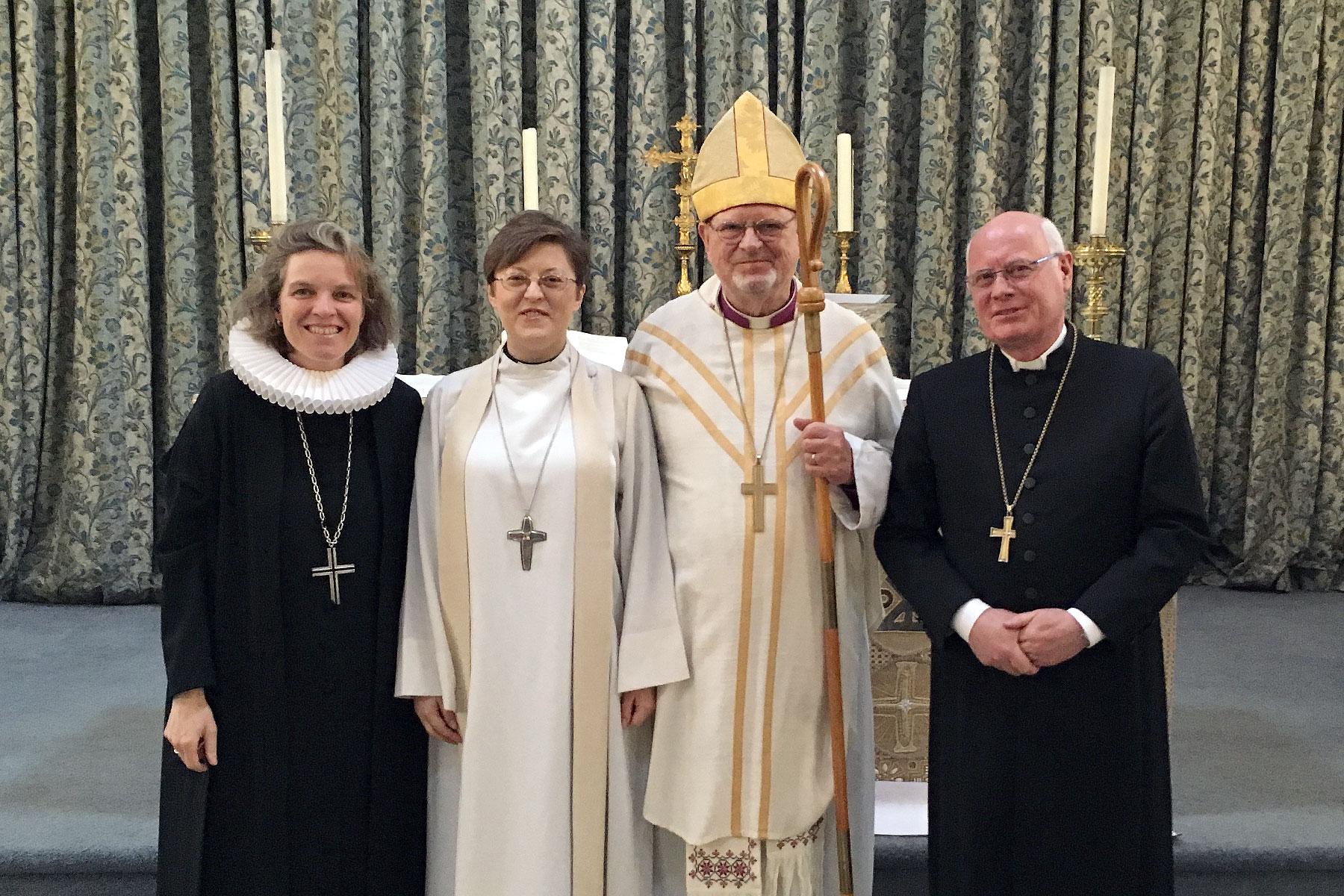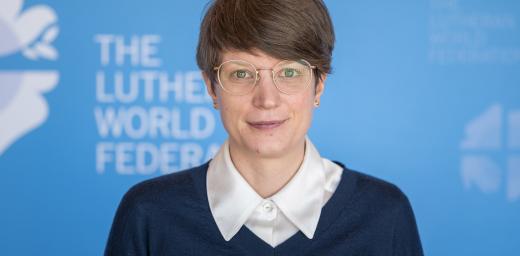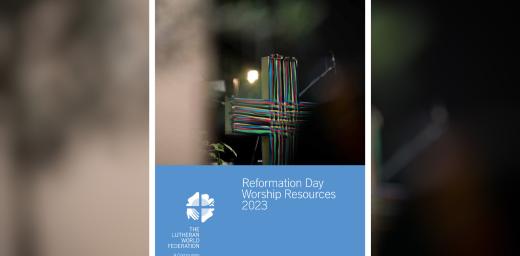Creating a space where trust can grow

Shaping the LWF communion: (from left) LWF Vice-President Astrid Kleist, LCiGB Dean-elect Rev. Eliza Zikmane, Rev. Dr Martin Lind, current Bishop of the LCiGB, and Oberkirchenrat Norbert Denecke, General Secretary of the LWF German National Committee. Photo: Astrid Kleist
LWF Vice-President Astrid Kleist visits Great Britain
(LWI) – “Discipleship is never lived in solitude,” said Pröpstin Astrid Kleist, Vice-President for the Central and Western Europe region of the Lutheran World Federation (LWF), in her address to the synod of The Lutheran Church in Great Britain (LCiGB), “Communion is a great gift, but also a tremendous task.”
Kleist was visiting the LWF member church in Great Britain for its annual synod held in London on 27 April. She was accompanied by Oberkirchenrat Norbert Denecke, General Secretary of the LWFs German National Committee (GNC/LWF). During the proceedings, the synod elected two new church leaders. Tor Berger Jørgensen, who was Bishop of Sør-Hålogaland (Church of Norway) until 2015, will be the next LCiGB bishop, and Eliza Zikmane, who is an ordained pastor in the Latvian Evangelical Lutheran Church Abroad, is the new dean of the church.
Being connected in the LWF communion
“LWF guests made our synod special,” says Zikmane. “Their presence raised our awareness of the worldwide Lutheran context, in which we play a part.”
The LCiGB exercises ministry in a minority situation Zikmane explained. “Sometimes we can feel isolated, therefore connections with other Lutheran churches are so important. Both Astrid Kleist and Norbert Denecke pointed out LCiGB’s unique position in and contribution to ecumenical dialogues with Anglican Communion and the Church of England.”
Their visit gave an incentive and inspiration to reinvigorate the links and cooperation between LCiGB and the LWFs Central and Western Europe region. The personal encounters and opportunity to meet each other and exchange insights were highly appreciated by members of the synod, as well as the congregation at St. Anne’s where the church services were held.
A space to defend human rights and human dignity
In her address Kleist noted that European history had not always been as peaceful as in the decades after the Second World War. After the reconciliation that has taken place “between victims and perpetrators, between enemy nations after the crimes and horrors of World War II,” Kleist said, Europe “has always been a project that fosters the respect for diverse cultures, different religions and different thinking. Despite all those differences we committed ourselves to live together in peace, solidarity and cooperation.”
“Our LWF region, which I have the honor to be vice-president of” should be a space “where we experience and live those friendships regardless of our political convictions,” Kleist says. “A space where we can come together to defend human rights and human dignity of people regardless of their origin, their race, their gender or their age.”
Kleist spoke of recent ecumenical achievements, saying we are "on the way from conflict to communion with the other churches that are part of the one body of Christ.” The Reformation commemoration brought new initiatives “that are irreversible and that have called us to act and work together well beyond 2017.”
She referred to the ongoing Lutheran-Roman Catholic dialogue as well as the Lutheran-Anglican dialogue as expressions of these developments.
Fostering the Lutheran communion globally and locally
Kleist said she was convinced that the LWF communion “can be a space where people engage with each other and commit themselves to the well-being of their brothers and sisters. Listening to the Word of God and to others, we can create a space where we endure what is strange to us; a space where trust can grow and where we learn to be respectful and appreciative of each other in our differences.”
Listening to the Word of God and to others we can create a space, where we endure what is strange to us; a space where trust can grow and where we learn to be respectful and appreciative of each other in our differences.
Having perceived the heterogeneous composition of the LCiGB which offers church services in more than five different languages for its 1,500 members, including Mandarin and Swahili, Kleist quoted Dietrich Bonhoeffer’s “Life Together: The Classic Exploration of Faith in Community”.
His emphasis on both solitude and community as being essential for true fellowship “applies well to our Communion of individual churches within the Lutheran World Federation,” Kleist said. “As churches we need to stand for ourselves, be aware of ourselves, of our individuality, our history, our contextual needs, gifts and treasures. But at the same we shall be aware of our togetherness and interdependence on one another which is as essential as well.”
Kleist closed with a word of encouragement “to care for each other and listen carefully, to explore what every single member of our communion requires, may that be consolation, joint reflection,mutual prayer, learning from others.”





